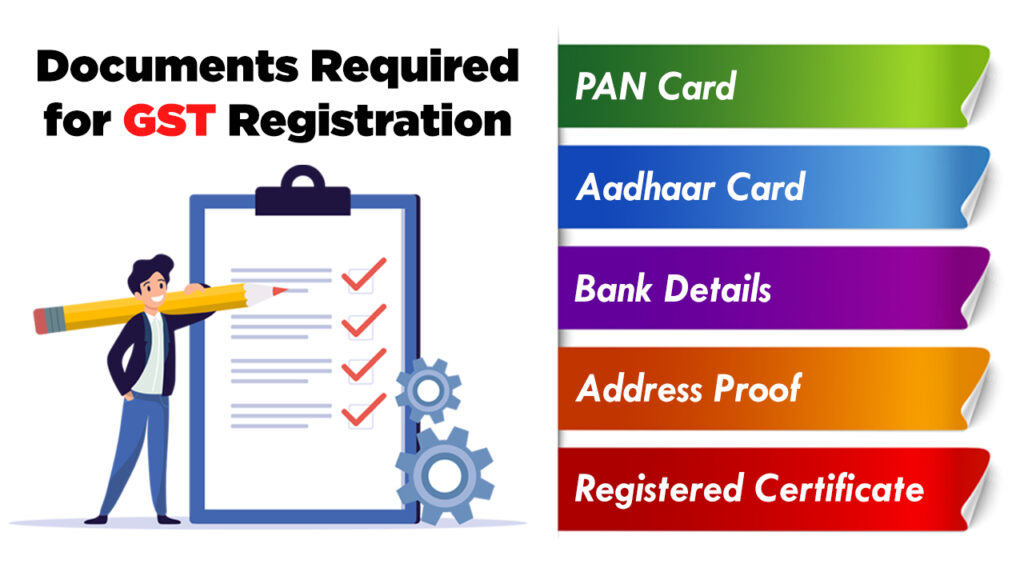Navigating the Intricacies of GST Registration: Specialist Tips and Ideal Practices for Smoother Conformity
Browsing the elaborate landscape of Goods and Provider Tax (GST) registration requires a keen understanding of the evolving regulatory structure and thorough attention to detail. As businesses aim to ensure compliance and avoid risks, specialist guidance and best techniques can act as vital compass points in this complex terrain. From figuring out registration demands to using technological devices for structured processes, the trip towards smoother GST compliance is complex and nuanced. Stay tuned to discover essential methods and insights that can assist companies steer with the complexities of GST enrollment with skill and self-confidence.
Recognizing GST Enrollment Demands

Along with turnover thresholds, organizations taking part in interstate sales or supplying taxable solutions may also be needed to sign up for GST, also if their turn over is listed below the recommended restriction (Singapore GST Registration). Understanding these requirements and thresholds is important to avoid fines and guarantee smooth procedures within the legal structure
In addition, companies need to gather and prepare the required documents, such as evidence of identification, address, company consolidation, and financial institution account information, prior to initiating the GST enrollment procedure. Failing to supply exact info or meet the enrollment target dates can cause fines or other lawful effects. Businesses should remain notified concerning the certain GST registration requirements applicable to their procedures to keep conformity and prevent prospective concerns.
Organizing Crucial Documentation
Companies beginning on the GST enrollment process need to carefully assemble and arrange the important documentation needed for submission. The essential records commonly needed for GST enrollment include evidence of service enrollment or unification, address and identity proofs of business proprietors or partners, checking account information, proof of primary business, and authorization types. Guaranteeing that these files are easily available and organized can improve the registration process and prevent hold-ups or denials.
To effectively organize important documentation, businesses must develop a centralized system for keeping and classifying the called for documentation (Singapore GST Registration). Utilizing electronic storage space options can aid maintain simple access and guarantee that records are firmly kept. Furthermore, developing a checklist of all required records can serve as a valuable device to track what has been collected and what is still needed for entry

Leveraging Innovation for Efficiency
Enhancing operational performance via technical assimilation is extremely important for modern-day services browsing the intricacies of GST enrollment. One of the vital methods technology can help in GST enrollment is via the use of automated software program services.
In addition, technology can assist in smooth communication with tax authorities. Online websites and interaction tools make it possible for companies to send records, solve inquiries, and receive updates in a much more effective way. This not only expedites the enrollment procedure however also assists in maintaining clear and reliable communication with the pertinent authorities.
Moreover, cloud-based storage space solutions give a safe and secure system for businesses to shop and accessibility their financial data, making certain conformity with GST record-keeping demands. By systematizing data storage space and automating processes, businesses can boost their general efficiency and accuracy in GST enrollment procedures.
Proactive Conformity Tracking

To make sure effective proactive compliance monitoring, organizations should establish durable inner controls, conduct routine audits, and take advantage of automation tools for real-time tracking of GST deals. Normal training sessions for workers on GST compliance needs can likewise assist in creating a society of compliance within the company. Additionally, engaging with tax professionals or specialists can give beneficial insights and support on navigating intricate GST policies.
Engaging With Specialist Professionals
Involving seasoned tax obligation consultants can significantly reinforce a business's understanding and conformity with intricate GST policies. Specialist specialists bring a riches of knowledge and experience to the table, assisting companies navigate the complexities of GST enrollment easily. By leveraging their experience, firms can make certain exact filings, minimize the threat of mistakes, and stay current with the most recent regulatory changes.
When engaging with professional consultants, it is vital to pick experts with a strong performance history in GST compliance (Singapore GST Registration). Search for consultants who have a deep understanding of the appropriate legislations and guidelines, in addition to experience functioning with services in your industry. Effective communication is type in this partnership, so see to it to plainly define your expectations and develop routine touchpoints to discuss progression and resolve any kind of concerns
Additionally, expert professionals can give beneficial understandings and recommendations on maximizing your tax method, determining possible cost-saving chances, and improving your conformity processes. Generally, buying specialist consultancy services can go a long means in ensuring smoother GST conformity and avoiding pricey blunders.
Final Thought
In verdict, browsing the complexities of GST enrollment requires a thorough understanding of the needs, organization of vital documents, leveraging modern technology for performance, positive conformity monitoring, and interaction with specialist specialists. By following these moved here ideal practices, businesses can ensure pop over to these guys smoother conformity with GST regulations and stay clear of possible charges or fines. It is vital to stay notified, aggressive, and persistent in handling GST registration to preserve conformity and support economic integrity.
To make sure conformity with tax laws, organizations should extensively understand the detailed demands for GST enrollment. Item and Provider Tax Obligation (GST) is a value-added tax obligation imposed on most items and solutions in a country, making it important for services to sign up for GST to prevent lawful consequences.Moreover, organizations have to gather and prepare the essential documentation, such as evidence of identity, address, company consolidation, and bank account information, before initiating the GST enrollment procedure. Companies ought to stay notified regarding the certain GST enrollment requirements relevant to their procedures to keep conformity and stay clear of prospective concerns.
The vital papers normally required for GST registration include proof of business registration or identification, incorporation and address evidence of the company proprietors or partners, bank account information, evidence of principal area of business, and permission types.